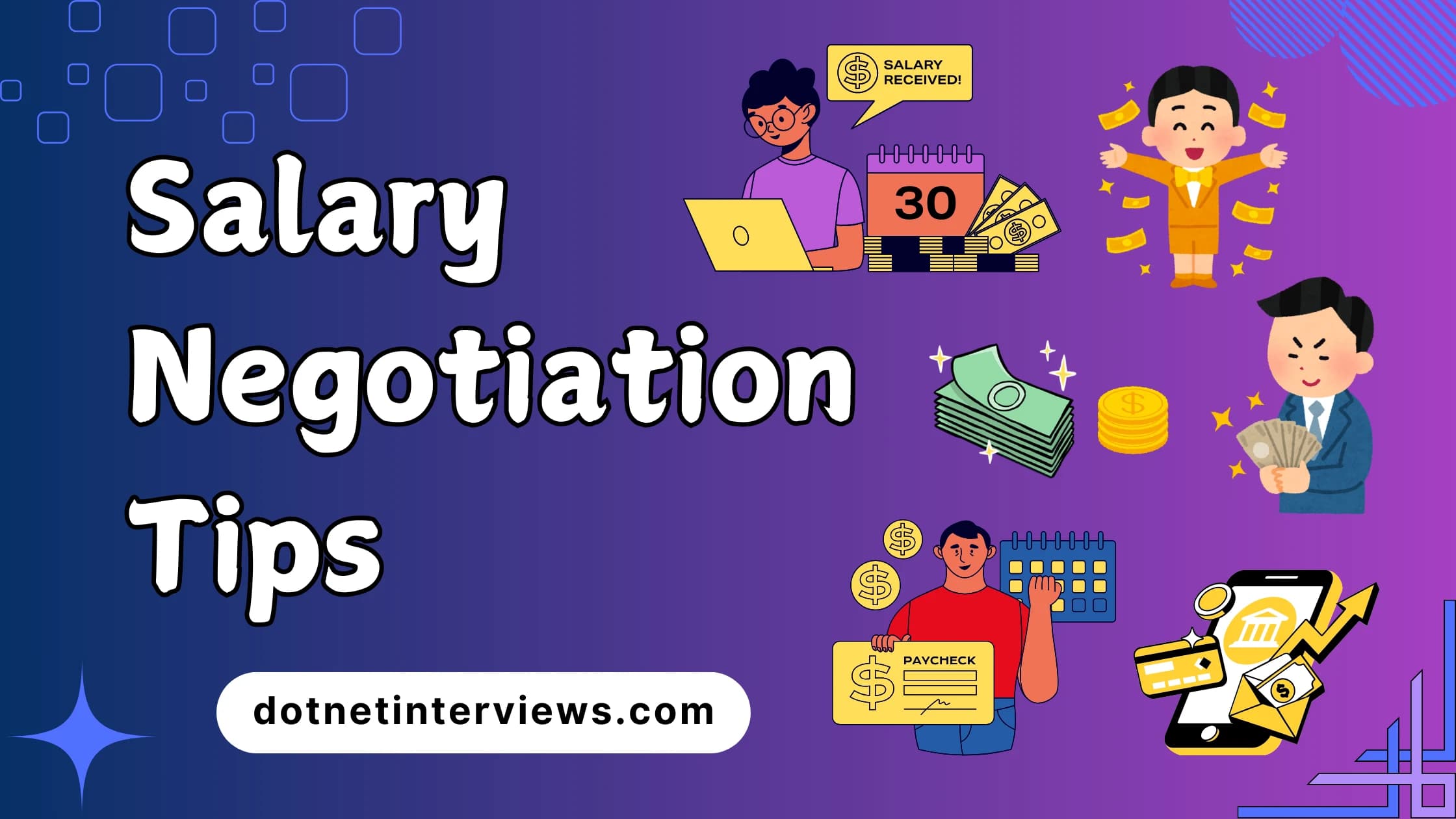Salary Negotiation Tips - Know Your Worth & Ask for It
Salary negotiation is crucial — yet often overlooked — part of the hiring process.
It's essential to approach this conversation with preparation and confidence.
Here are some key strategies to help you navigate salary negotiations effectively.
Table of Contents (Click to Expand)
Do Your Research
Before entering negotiations, gather data on industry salary standards.
Use tools like Glassdoor, Indeed, and LinkedIn Salary Insights to find average salaries for your role based on factors such as location, experience, and company size.
This information will provide a solid foundation for your negotiation.
You can also see answered questions on forums like Quora or Reddit.
Knowing the market rate empowers you to confidently discuss numbers and avoid being underpaid.
Understand Your Value
Reflect on your skills, experience, and the unique value you bring to the organization.
This will help you build a strong case for why you deserve a higher salary.
For example, if you’ve led a project that saved your previous employer time or money, use that as evidence of your value.
Be Clear About Your Expectations
When discussing salary, be prepared to state your desired salary range clearly.
Base your range on solid research and your professional value.
Be confident but flexible; it’s essential to convey that you are open to discussion.
For example, you might say: ‘Based on industry data and my experience leading successful cross-functional teams, I’m targeting a range of ₹12–14 LPA.
Consider the Entire Compensation Package
Salary is just one component of your overall compensation.
Consider other benefits, such as:
- Remote work flexibility
- Learning budget or training support
- Bonuses
- Stock options
- Health insurance
- Vacation days
- Retirement plans
Sometimes, if the base salary is non-negotiable, you can negotiate for other benefits that can enhance your overall package.
Be Prepared for Different Outcomes
Understand that negotiations may not always go in your favour.
Be ready for various outcomes, including the possibility of a counteroffer or a flat-out denial.
If the offer falls short, don’t hesitate to ask if there's room for negotiation or express your desire to revisit the salary after a performance review.
Get Everything in Writing
Once you’ve agreed on a salary and benefits package, request a formal offer letter or an email that outlines all the details.
This protects both you and the employer and ensures there’s clarity on the terms of your employment.
Verbal agreements can lead to misunderstandings — written confirmation protects both sides.
Know When to Walk Away
Finally, if the offer doesn’t meet your minimum acceptable salary or if the terms are not in line with your career goals, be prepared to walk away.
It’s essential to know your worth and to seek a role that aligns with your financial and professional aspirations.
Pro Tip: An Offer Isn’t the End — It’s Leverage
After receiving your first job offer, don’t stop applying!
Continue to explore other opportunities, as having an offer can strengthen your negotiating position.
You can leverage this offer to negotiate for a higher salary with other companies.
Ultimately, you can choose the position that aligns best with your financial expectations and career aspirations.
Conclusion
Negotiating your salary isn’t just about numbers — it’s about advocating for your value, setting the tone for your future growth, and making sure you're fairly compensated for your work.
By doing your research, knowing your worth, and communicating with clarity and confidence, you can approach any offer with the power to negotiate — not just accept.
Have you ever negotiated a salary or benefit successfully (or wish you had)?
Share your experience or questions in the comments below — your story could help someone else prepare for their next big opportunity.
📌 One last tip: The more you practice having these conversations, the easier they get. So start now — even if it’s just by writing down your ideal offer.
Ready to ask for what you deserve? Start with the next opportunity — and go in prepared.
This article is part of our Job Search Success Series:
- How to Create a Resume That Gets You Hired (With Examples & Formatting Tips)
- Master LinkedIn and Naukri Profile Optimization to Land Your Dream Job Faster
- Smart Job Search Strategies: What Successful Job Seekers Do Differently
- Job Interview Prep: 23 Generic Questions You’ll Likely Be Asked
Ready to boost your interview prep?
Check out our comprehensive guide: Cracking Tech Interviews: From Resume Preparation to Offer Negotiation
Are you a .NET developer?
Don’t miss the Ultimate Guide to .NET Interview Preparation — packed with key questions and insights.
Practice DSA the smart way:
Master the Blind 75 Leetcode Problems — a curated list of the most important coding questions to crack your next technical interviews.

